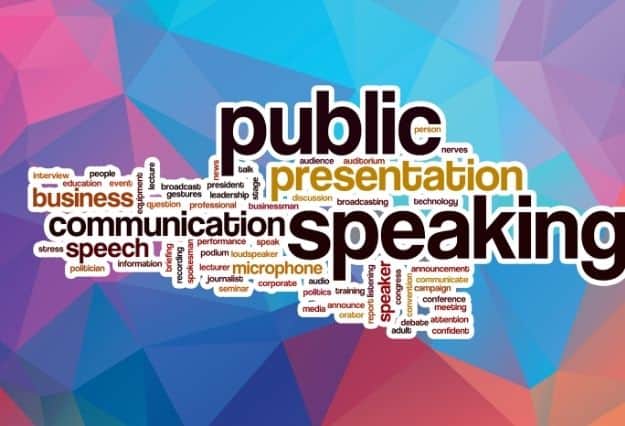Difference Between Business Communication and General Communication
Business and General communications are two of the most common branches of communication.
When we convey or receive information that is non-business related, that’s General communication.
On the other hand, business-related information between business people or organizations is called Business communication.
However, the business types, processes, methods, concepts, etc., remain virtually similar to general communication. The primary variance is in the purpose, styles, and locations of application.
The table below provides the signal differences between business communication and general communication.
| Subject | Business Communication | General Communication |
| Format | Use the formal style of communication. | Use varying forms depending on the presiding circumstance. |
| Personal touch | There is no scale for applying personal thoughts, feelings, or viewpoints in business-oriented messages, documents, or emails. | Most of the general communication is covered by personal feelings, opinions, and thoughts. |
| Scope | It focuses on practical information which is impartial and is both objective and goal-oriented. | Often subjective and features false thoughts and viewpoints. |
| Presentation | The communication has a channel that flows per the organizational and company’s provisions. | It does not have a flow formality, and you can use various approaches. |
| Objective | The information is exchanged to trigger a specific action. | Here communication can be made without necessarily expecting any action afterward. |
| Type |
The communication is official. |
This is personal communication as each time a person talks based on the business. |
| Feedback | The importance of feedback in the success of a business cannot be overstated. | Feedback does not have much importance. |
What is Business Communication?
This is a type of communication where business-related information is passed between businesspeople to foster organizational objectives, goals, and activities, improving the company’s profit.
Examples of business communication include:
- Introducing options or new business ideas
- Implementing alternatives
- Striking deals
- Delivering and completing orders
- Productive meetings
Types Of Business Communication
1. Internal Scale Communication
Internal scale business communication flows from supporting staff to an individual in the higher ranks in the organization (supervisor, head of departments, manager, etc.)
Every staff must approve the information to flow to have a genuine insight into the firm’s behavior. Here, employees give surveys, questionnaires, comments, and findings to their superiors, leaders, or bosses as part of this communication.
2. Internal Coordinate Communication
Internal coordinate communication begins from a person of high rank to subordinate staff. This kind of communication may be in letters, verbal directives, memos, or mail.
Superiors should keep the communication professional, formal, and clear when addressing other employees. A directive on a new firm working method, such as safety standards and the most current rules, is an example of this form of communication.
3. Internal Communication In The Workplace
This takes place between employees in their working environment. Nowadays, there are many alternatives for employees to exchange messages, chats, email, and employee communication software.
This sort of communication is more frequent than other types of corporate communication and might occur inside departments or just between employees.
4. External Communication
External business is a communication approach used between external parties such as partners, customers, vendors, or prospects. Contrary to the internal business communication format, external communication takes place less regularly.
Importance of Business Communication
1. Managerial Efficiency
For smooth operation and management, good communication skills in business are crucial aspects. Managerial activities may be effectively completed if the managers possess strong communication abilities. Otherwise, the company is likely to make losses.
2. Enhance Morale And Relations
Employee engagement in management can be fostered through effective communication. It aids in developing employee morale and the establishment of amicable industrial relations between employees and management.
3. Effective Leadership
Effective communication is essential for productive leadership. Quality communication is two-way in nature, where a manager hears out the subordinates’ views and implements the practical and realistic ones.
4. Mutual Trust And Confidence
To go forward effectively, an organization requires mutual trust and confidence between any workforce and management.
Efficient communication eliminates misunderstandings and fosters mutual trust between the two parties.
5. Better Decision
Better decisions may be used to gauge an organization’s performance. When information, statistics, and other facts are not adequately presented, decision-making suffers.
Decision-making can be easy when the facts are relayed to the relevant departments, organizations, and individuals.
Three Most Common Business Communication Skills
1. Collaboration
Collaboration is a critical component of corporate success. Working as a team has tons of advantages for a company, ranging from improved marketing to enhanced employee satisfaction and superior product or service quality.
The art of collaboration is a comprehensive network of interconnected talents. To collaborate, you must be skilled at posing questions, appreciating others’ contributions, earning their trust, and taking their points of view into account.
These abilities contribute to an employee’s capacity to cooperate successfully: another crucial aspect of collaboration is emotional intelligence and awareness.
People often make emotional instead of logical decisions; thus, knowing others’ emotions enhances your ability to comprehend why they make judgments and use them to the team’s advantage.
2. Public Speaking
Whether you’re addressing colleagues at a conference, in a busy lecture hall, or to your team before a huge project, you need to convey your thoughts effectively and simply.
Consider making contingency plans to handle your two biggest public speaking anxieties or defining a fallback objective if your speech goes off the tracks.
Being open to inquiries throughout your speech helps to engage and involve the audience members. Additionally, it can aid in developing rapport and comfort.
People often respond to personal tales, so preparing one or two anecdotes to highlight points you want to make ahead of time may be an excellent approach to connect with people.
3. Listening
As per Jimmy Lee (of Dorsett Hospitality International), good listening is crucial for effective communication. By honing your listening abilities, you may create an atmosphere in which everyone feels heard and respected.
You also practice hearing and remembering vital information. People can usually tell when you’re paying attention to them.
Good listeners will elicit a more positive response from the majority of individuals. Maintaining an active engagement with your conversation partners fosters a sense of passion and appreciation in your workplace.
Pay lots of attention to people when you’re listening to them. Take note of any peculiarities in their body language.
Listen to what they say and, if you have difficulties concentrating, repeat what they say in your brain to help you keep concentration and assimilate the information.
What is General Communication?
This communication type allows people to exchange information, thoughts, feelings, and opinions on any broad issue.
It essentially involves any contact between arbitrary persons discussing ordinary subjects, regardless of the communication approach. Business communication methods, procedures, kinds, and concepts, for example, are nearly identical to those of general communication.
General communication comprises general pieces of information except for business. There is no defined communication structure in this communication since it’s often informal and less well planned.
While it might be partial and subjective at times, it can also have accurate facts. In this type of communication, general or personal matters are openly discussed.
The perfect example of general and business communications is witnessed in daily life. For example, when you’re with your pals, you chat informally, reveal your sentiments and emotions, and use informal language.
On the other hand, while you’re at work with your coworkers and superiors, you communicate officially and have some business-related discourse, which falls under the category of business communication.
Three Most Common General Communication Skills
1. Empathy
Empathy is not just understanding but also sharing the feelings of others. This competence is helpful in both group and one-on-one situations. In all circumstances, you must comprehend other people’s feelings and respond appropriately.
For instance, empathy can help someone acknowledge and diffuse your feelings if you express rage or irritation. Simultaneously, understanding when someone is feeling upbeat and excited might help you gain approval for your ideas and projects.
2. Respect
Knowing when to begin a dialogue and when to answer is an integral part of respect. Allowing people to talk without interruption is a vital communication skill associated with care in a team or group situation.
Respectfully conversing also entails using someone else’s time wisely—staying on the subject, asking specific questions, and replying thoroughly to any questions they pose.
3. Feedback Sharing
Strong communicators can both receive and deliver constructive feedback to others. Feedback should reply to questions, offer solutions, or aid in the improvement of the project or issue at hand.
Giving and receiving feedback is a critical workplace skill since it may help you and your colleagues make substantial changes to your job and professional growth.
Taking notes on the feedback you receive is an excellent approach to learning how to give feedback. Take some time to notice and understand why a piece of feedback was perfect, why it connected with you, and how you may use those abilities in the future when you stumble on one.
Bottom Line
According to the preceding explanation, both Business Communication and General or Personal Communication are vital to our daily lives, though some significant distinctions exist.
Both communication channels’ application, style, technique, and formality must be carefully studied to enhance effectiveness.
















